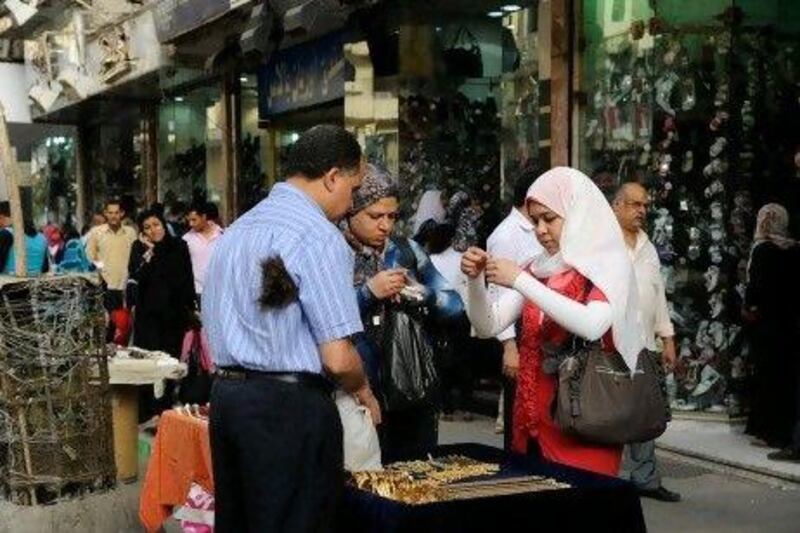Egypt took a step closer to securing a US$3.2 billion (Dh11.7bn) loan from the IMF when the country's finance minister put a May 15 deadline on the deal.
Mumtaz Al Said called on Egypt's divided politicians to "stand with the government to overcome the economic crisis".
"Egypt needs $10bn to $11bn in the next 18 months in order to bring back economic stability," he said yesterday.
"The government is studying getting this funding from several financial institutions and donor countries and not just from [the] fund."
If Egypt does strike a deal with the IMF it would bring to a close a lengthy and often bitter debate among politicians about whether to tap the multilateral bank. Egypt spurned an opportunity for assistance from the IMF last year.
The interim government led by the military has since resumed talks, but the wavering has threatened to drag the country into a fiscal crisis.
More than $20bn in foreign reserves have been exhausted by the government since revolution in February last year.
Officials are beginning to recognise the perilous state of government finances, said Rachel Ziemba, an analyst of sovereign wealth funds and Gulf economies at Roubini Global Economics. "Parliamentarians are having to be pragmatic and remember that their finances are a shambles and the IMF is the cheapest creditor in town," she said.
An IMF technical team left Cairo on Tuesday after meeting a broad spectrum of political parties. It reaffirmed the importance of wide political support for the loan and the economic plan linked to the funding. The IMF is also requesting details of Egypt's proposed budget for the coming fiscal year.
The funding bid was thrown into uncertainty last week after a frontrunner in next month's presidential election said he would not support the loan unless the terms were changed.
Khairat Al Shater, who is in the running for the Muslim Brotherhood's Freedom and Justice Party, urged the military rulers to postpone the borrowing until an elected government was in place.
Egypt needs the cash to help prop up its ailing currency and cut how much the government is paying to service its debt.
The IMF funds are also important in helping attract other foreign investment. Many foreigners have remained nervous about investing until signs of stability return.
To support its loan bid, the interim government has submitted to the IMF an economic programme, which is believed to lay out reforms the government would make to support the funding. Some of these reforms might be deeply unpopular, such as reductions in subsidies and new taxes.
* with agencies





